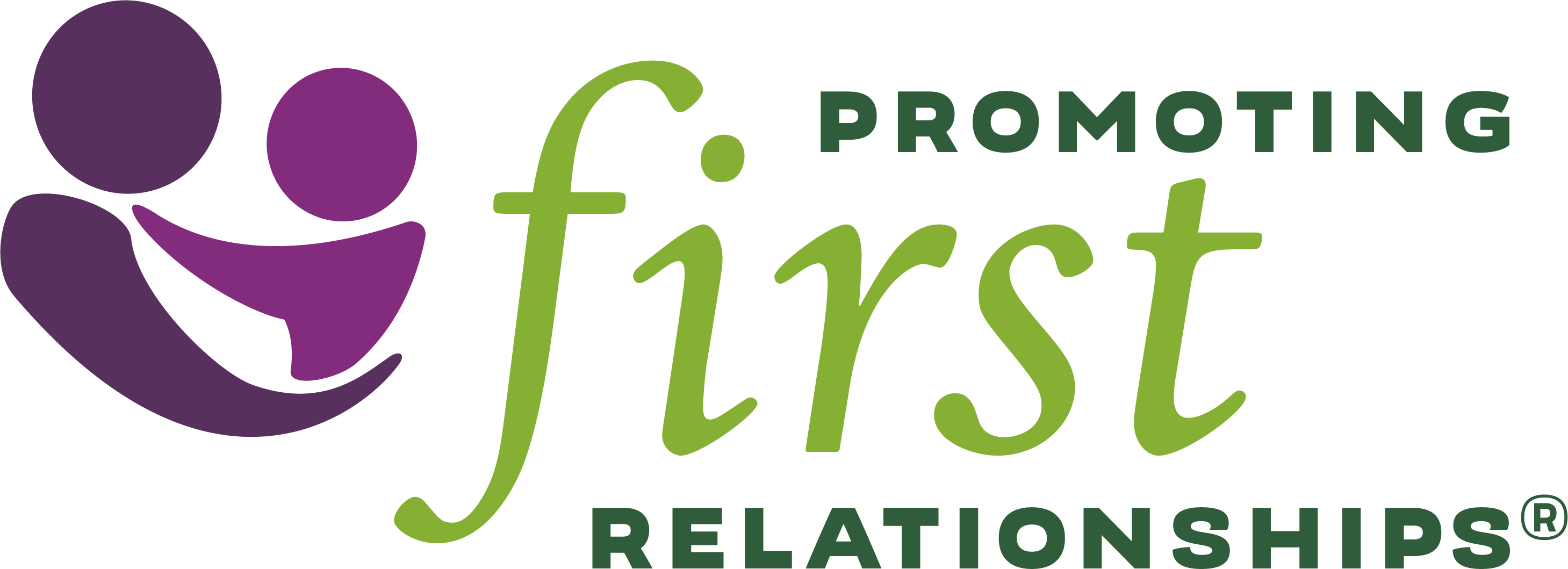About Our Training
Promoting First Relationships (PFR) is a comprehensive training program designed to support professionals who work with caregivers and young children (birth to 5 years). Our early relational health program equips professionals with the knowledge, tools, and strategies needed to help caregivers build nurturing and responsive relationships with children.
Also, PFR meets Infant Mental Health (IMH) Core Competencies!
Through the training, participants learn effective consultation and intervention techniques that can be applied in their work with families and young children. These strategies can be used one-on-one with parents and caregivers, in home or in a clinic setting, in a group model, or with childcare providers and early childhood teachers responsible for caring for children in groups.
Key Components of Promoting First Relationships Training
Theoretical Foundation
- The program integrates theory and practice to support caregiver-child relationships using attachment theory and reflective, relationship-focused practice principles.
- Emphasizes a positive, strengths-based approach that encourages caregiver openness and curiosity, and boosts their confidence and investment in their relationship with their child.
Learning Approaches
- Video Case Studies: Participants analyze real-life scenarios to understand and apply the concepts.
- Reflective Dialogue and Exercises: Encourages thoughtful discussion and self-reflection to deepen understanding and application of the strategies.
Core Focus Areas
- Parent-Child Relationships: Understanding the factors that contribute to a healthy and positive relationship.
- Reflective Observation and Feedback: Learning the strategies of reflective observation, verbal feedback, and reflective questions to support caregivers in a strengths-based way.
- Social and Emotional Needs: Recognizing the specific social and emotional needs of infants and young children.
- Caregiving Qualities: Promoting attuned, responsive caregiving to enhance a child’s behavioral and emotional regulation. Observing sensitivity to cues and meeting the child’s social-emotional needs.
- Social Behavior Promotion: Discussing caregiving qualities that promote a child’s healthy social behavior, including managing distress, handling frustration, and interacting with peers and other adults.
- Challenging Behaviors: Identifying causes for challenging behaviors, reframing these behaviors for parents and caregivers to understand the needs that are driving the behavior, and developing individualized intervention plans.
- Caregiver Self-Reflection: Exploring the caregiver’s own sense of self, emotion regulation, and support systems that influence their caregiving.
Benefits of the Program
- Enhanced Caregiver Competence: Caregivers gain skills and confidence in their caregiving abilities.
- Improved Child Outcomes: Children benefit from more responsive and nurturing relationships, leading to better social and emotional development.
- Professional Development: Professionals gain valuable tools and strategies to support caregivers and young children in a relational, reflective, strengths-based way.
Delivered in Home Visiting, Clinic, and Center-Based Models
- One-on-One Support: Home visiting or clinic-based to support the caregiver-child dyad.
- Group: Group format for parents and caregivers.
- Childcare/Early Learning: Supports providers working with children in group care.
- Pediatric clinic: Pediatricians and healthcare professionals use programs with families in their practice.
Training Levels
Learn more about the three levels of training available for professionals who work in home visiting, in clinic-based practice, or in early learning.
For more information on training in Promoting First Relationships in Pediatrics, please visit Parent-Child Relationship Programs, or contact Jennifer Rees at rees@uw.edu.
